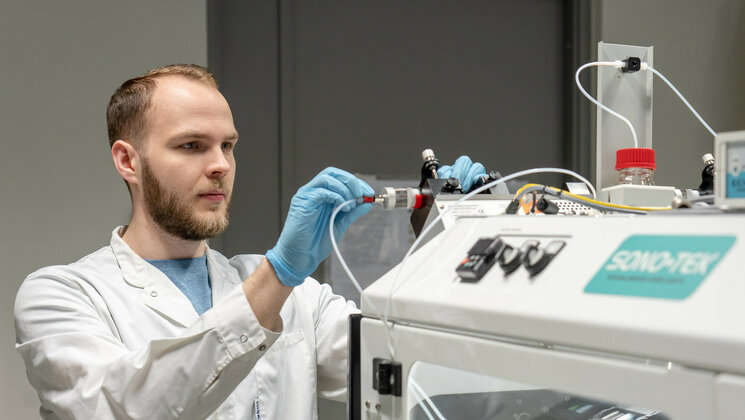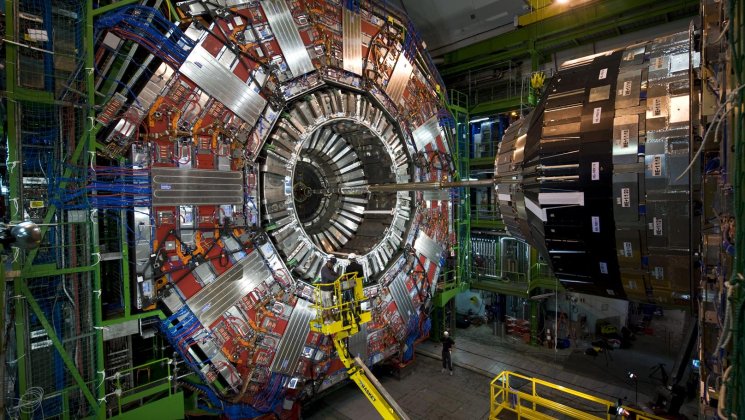-
Humanitaarteaduste ja kunstide valdkondHumanitaarteaduste ja kunstide valdkonna dekanaatJakobi 2, r 116-121 51005 Tartu linn, Tartu linn, Tartumaa EST0Ajaloo ja arheoloogia instituutJakobi 2 51005 Tartu linn, Tartu linn, Tartumaa EST0Eesti ja üldkeeleteaduse instituutJakobi 2, IV korrus 51005 Tartu linn, Tartu linn, Tartumaa ESTFilosoofia ja semiootika instituutJakobi 2, III korrus, ruumid 302-337 51005 Tartu linn, Tartu linn, Tartumaa EST0Kultuuriteaduste instituutÜlikooli 16 51003 Tartu linn, Tartu linn, Tartumaa EST0Maailma keelte ja kultuuride instituutLossi 3 51003 Tartu linn, Tartu linn, Tartumaa EST0UsuteaduskondÜlikooli 18 50090 Tartu linn, Tartu linn, Tartumaa EST0Viljandi kultuuriakadeemiaPosti 1 71004 Viljandi linn, Viljandimaa EST0Humanitaarteaduste ja kunstide valdkonna emeriitprofessorid0Humanitaarteaduste ja kunstide valdkonna emeriitdotsendid0Sotsiaalteaduste valdkondSotsiaalteaduste valdkonna dekanaatLossi 36 51003 Tartu linn, Tartu linn, Tartumaa EST0Haridusteaduste instituutJakobi 5 51005 Tartu linn, Tartu linn, Tartumaa EST0Johan Skytte poliitikauuringute instituutLossi 36, ruum 301 51003 Tartu linn, Tartu linn, Tartumaa EST0MajandusteaduskondNarva mnt 18 51009 Tartu linn, Tartu linn, Tartumaa EST0Psühholoogia instituutNäituse 2 50409 Tartu linn, Tartu linn, Tartumaa EST0ÕigusteaduskondNäituse 20 - 324 50409 Tartu linn, Tartu linn, Tartumaa EST0Ühiskonnateaduste instituutLossi 36 51003 Tartu linn, Tartu linn, Tartumaa EST0Narva kolledžRaekoja plats 2 20307 Narva linn, Ida-Virumaa EST0Pärnu kolledžRingi 35 80012 Pärnu linn, Pärnu linn, Pärnumaa EST0Sotsiaalteaduste valdkonna emeriitprofessorid0Sotsiaalteaduste valdkonna emeriitdotsendid0Meditsiiniteaduste valdkondMeditsiiniteaduste valdkonna dekanaatRavila 19 50411 Tartu linn, Tartu linn, Tartumaa ESTBio- ja siirdemeditsiini instituutBiomeedikum, Ravila 19 50411 Tartu linn, Tartu linn, Tartumaa ESTFarmaatsia instituutNooruse 1 50411 Tartu linn, Tartu linn, Tartumaa ESTHambaarstiteaduse instituutL. Puusepa 1a 50406 Tartu linn, Tartu linn, Tartumaa ESTKliinilise meditsiini instituutL. Puusepa 8 50406 Tartu linn, Tartu linn, Tartumaa ESTPeremeditsiini ja rahvatervishoiu instituutRavila 19 50411 Tartu linn, Tartu linn, Tartumaa ESTSporditeaduste ja füsioteraapia instituutUjula 4 51008 Tartu linn, Tartu linn, Tartumaa ESTMeditsiiniteaduste valdkonna emeriitprofessorid0Meditsiiniteaduste valdkonna emeriitdotsendid0Loodus- ja täppisteaduste valdkondLoodus- ja täppisteaduste valdkonna dekanaatVanemuise 46 - 208 51003 Tartu linn, Tartu linn, Tartumaa ESTArvutiteaduse instituutNarva mnt 18 51009 Tartu linn, Tartu linn, Tartumaa ESTGenoomika instituutRiia 23b/2 51010 Tartu linn, Tartu linn, Tartumaa ESTEesti mereinstituutMäealuse 14 12618 Tallinn, Harjumaa EST0Füüsika instituutKeemia instituutRavila 14a 50411 Tartu linn, Tartu linn, Tartumaa ESTMatemaatika ja statistika instituutNarva mnt 18 51009 Tartu linn, Tartu linn, Tartumaa EST0Molekulaar- ja rakubioloogia instituutRiia 23, 23b - 134 51010 Tartu linn, Tartu linn, Tartumaa ESTTartu observatooriumObservatooriumi 1 61602 Tõravere alevik, Nõo vald, Tartumaa EST0TehnoloogiainstituutNooruse 1 50411 Tartu linn, Tartu linn, Tartumaa ESTÖkoloogia ja maateaduste instituutJ. Liivi tn 2 50409 Tartu linn, Tartu linn, Tartumaa ESTLoodus- ja täppisteaduste valdkonna emeriitprofessorid0Loodus- ja täppisteaduste valdkonna emeriitdotsendid0Akadeemilise sekretäri tegevusvaldkondPersonaliosakondÜlikooli 18, ruumid 302 ja 304 50090 Tartu linn, Tartu linn, Tartumaa EST0Finantsjuhi tegevusvaldkondRahandusosakondJakobi 4 51005 Tartu linn, Tartu linn, Tartumaa EST0Kantsleri tegevusvaldkondInfotehnoloogia osakondUppsala 10 51003 Tartu linn, Tartu linn, Tartumaa EST0KantseleiÜlikooli 17 (III korrus) 51005 Tartu linn, Tartu linn, Tartumaa EST0Kinnisvaraosakond0Turundus- ja kommunikatsiooniosakondÜlikooli 18, ruumid 102, 104, 209, 210 50090 Tartu linn, Tartu linn, Tartumaa EST0Rektori tegevusvaldkondRektoraadi bürooÜlikooli 18 50090 Tartu linn, Tartu linn, Tartumaa ESTSiseauditi bürooÕppeprorektori tegevusvaldkondÕppeosakondTeaduskoolUppsala 10 51003 Tartu linn, Tartu linn, Tartumaa ESTÜliõpilaskonna bürooÜlikooli 18b 51005 Tartu linn, Tartu linn, Tartumaa EST0Õppimis- ja õpetamiskeskusLossi 36-401 51003 Tartu linn, Tartu linn, Tartumaa ESTTeadusprorektori tegevusvaldkondRaamatukoguW. Struve 1 50091 Tartu linn, Tartu linn, Tartumaa ESTGrandikeskusRaekoja plats 9, III korrus 51004 Tartu linn, Tartu linn, Tartumaa ESTArendusprorektori tegevusvaldkondEttevõtlus- ja innovatsioonikeskusNarva mnt 18 51009 Tartu linn, Tartu linn, Tartumaa EST0Loodusmuuseum ja botaanikaaedVanemuise 46 51003 Tartu linn, Tartu linn, Tartumaa EST0Rahvusvahelise koostöö ja protokolli osakond0MuuseumLossi 25 51003 Tartu linn, Tartu linn, Tartumaa EST0
Arvi Jõers, molekulaarse mikrobioloogia kaasprofessor
Molecular biology has enjoyed rapid development over the last 30 years. We are now entering a new era – instead of just studying it we can start engineering biology. This means building new functions and systems into living cells, giving them properties that do not occur in nature. Our main project is to engineer bacterium Escherichia coli, a workhorse in industrial biotechnology, in a way that gives us a complete control over its growth. This enables more advanced metabolic engineering and allows high productivity strains to be built.
Our lab got started in 2019, so everything is fresh and new. So far there are 4 of us:
Arvi Jõers, PhD, Senior Research Fellow, group leader
Marje Kasari, PhD, Research Fellow
Villu Kasari, PhD, Research Fellow
Mirjam Kärmas, Master´s student
Koit Kõrgnurm, undergraduate
We are looking for new people and collaborations, so if you are interested in synthetic biology, please give us a call or send an e-mail.
Tel: +372 737 5041
Industry collaboration
FastMicro project with TFTAK
There are hundreds of different microbes in the human gut. Many could be useful as probiotics, but growing them in larger amounts is technically difficult. Most of these microbes are obligate anaerobes and do not tolerate oxygen. During this project we will develop a platform technology for growth medium optimization for anaerobic bacteria. This technology speeds up the discovery process and paves the way for the next generation probiotics.
Teadlased valmistasid ämblikku jäljendava robotjala

Ülikool toob Ida-Virumaale tippspetsialiste ja tulevikutehnoloogiaid

